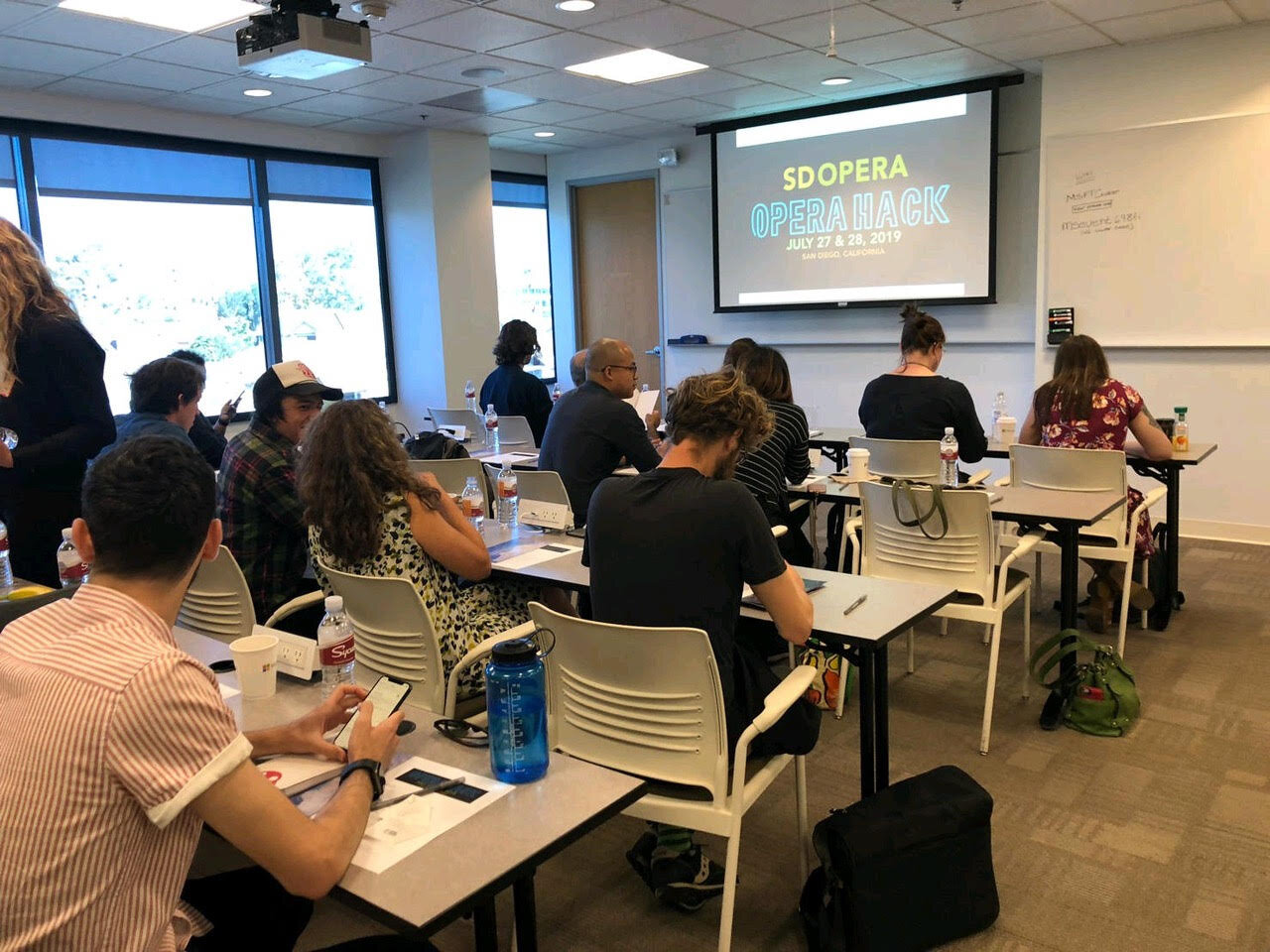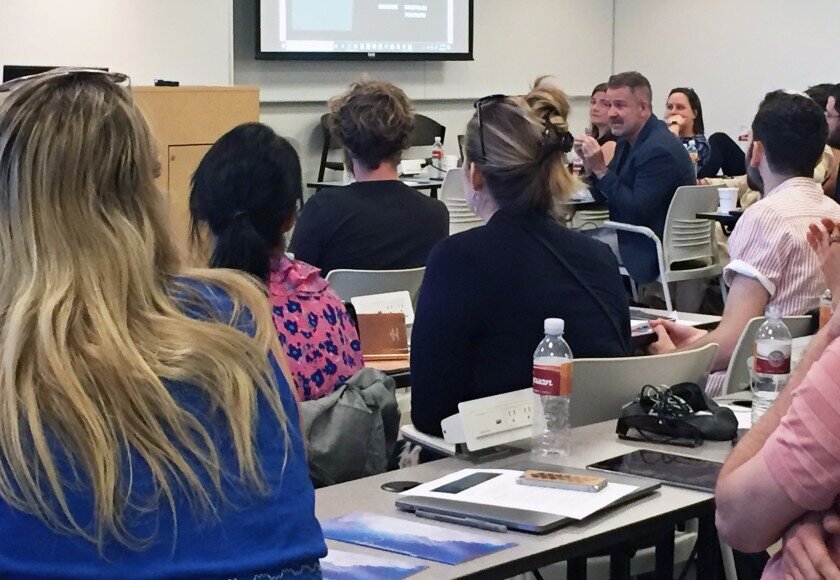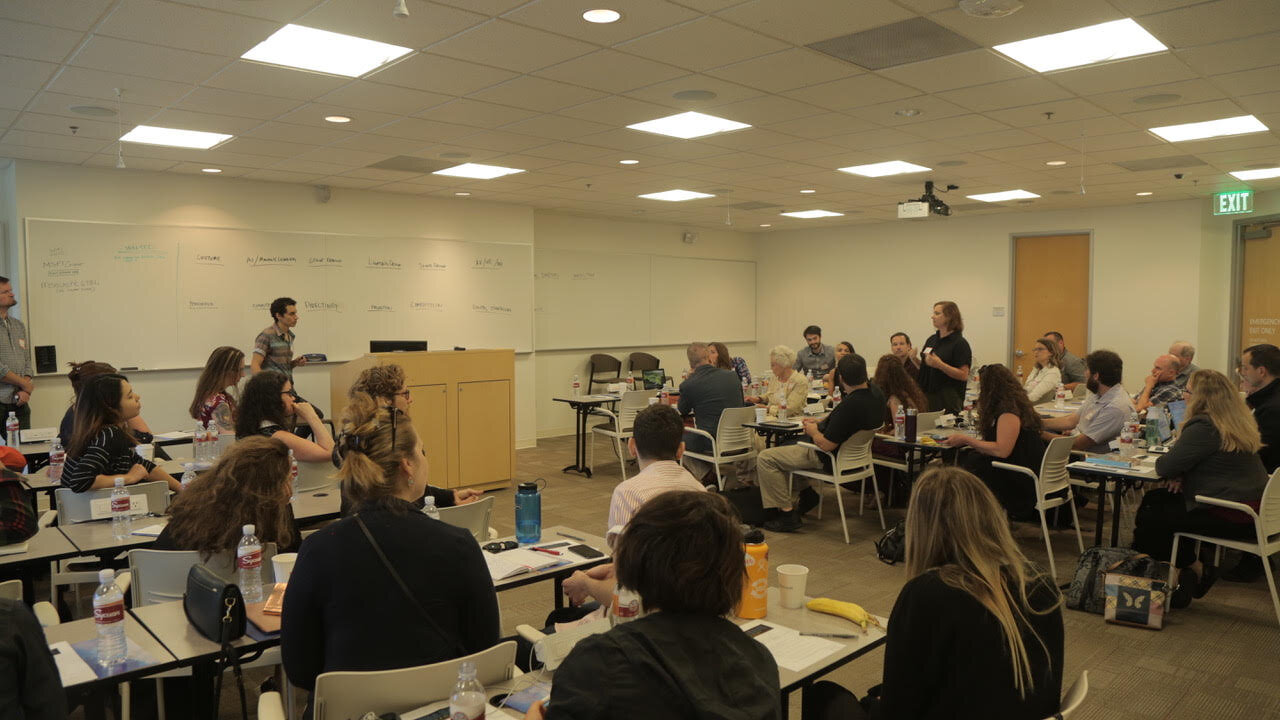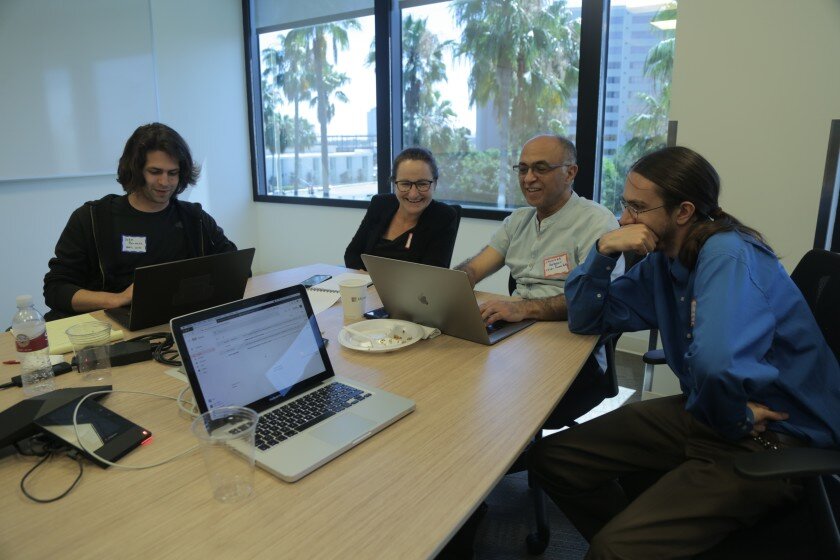Photo via CLAUDILLEA | The Official Website
(Santa Fe, NM) - We discovered London-based artist Claudillea Holloway by accident. Like many things these days, it started on Instagram. While scrolling through the stories of friend and tenor Elliott Paige, a video of Claudillea performing an operatic cover of The Rolling Stones’ Paint It Black appeared. Given OI’s love of all things that move the dial for opera, we literally fell out of our chair, screaming. Elliott shared that he and Claudillea are friends from their time together at Manhattan School of Music and that she was a contender in 2020’s The Voice UK, originally with Meghan Trainor but whisked away by the one and only Will.I.Am. An online introduction ensued, lots of DMs and even the generous opportunity to hear some of Claudillea’s new music, which we think could change perceptions of opera in popular culture; how classically trained voices can and should be seamlessly integrated with contemporary pop and dance music.
We recently spoke with Claudillea via WhatsApp, which was an opportunity to learn more about her process, her approach to music and how hard she had been working to prepare for the release of Habanera. As of this writing, in association with Black Box Los Angeles, her Habanera video has captured over 98K views in just three (3) weeks, with organic YouTube search placing her version of one of opera’s greatest pieces at #4 – a huge accomplishment in itself!
OI Insights wanted to spotlight Claudillea as an emerging crossover artist who’s moving the dial for opera, as well as creating important connective tissue between the business of opera and popular music globally.
OI: We’re thrilled with how Habanera is being received on YouTube and undoubtedly via streaming, too. Based on our recent chat, you’ve long had ideas about how to transform opera from both the inside and the outside. Regarding the latter, we see your Habanera is an homage that invites both opera and pop music fans to join you in a brand new place with, we might add, a signature sound. Your thoughts?
CH: Firstly, thank you so much James and OI for your continued support and encouragement- it is incredibly humbling. When working on Habanera, it was important to me that we respected what Bizet created 147 years ago, but also messed with it just enough to bring it into the 21st century. I think most people who are not used to listening to Operatic voices, often find the vibrato a little startling and then tune out from listening to it again, and so I wanted to blend classical and pop timbres together, to make it a little easier on the ears for a non-classical audience, whilst also hopefully whetting their taste just a bit for more Opera and Operatic vocals. I’ve always admired artists who seamlessly blend different genres together, creating new sounds, and I myself listen to an array of genres, so why not put electronic trap music - which I love - with one of my favourite arias? I would love people to listen to something like Habanera and realise the beauty of these old works, in that they are timeless, and speak of things we still talk about and deal with today. Opera was the pop music of it’s day!
OI: We’ve long said that opera singers are brands. How would you describe brand Claudillea? Your brand identity, the ethos – or spirit, vibe – that you’re trying to create and make your own? How does your concept of OPPOP play into it?
CH: I’m trying to start an Anti-Box revolution! That’s my “brand.” I don’t want to play by anyone’s rules (just as Carmen did not). In almost all aspects of life, we have to check which box we fit into…from gender to sexuality to race to fach. I’m technically a coloratura soprano, so it’s almost sacrilegious to sing a mezzo aria, but why the hell not? During my studies, I wasn’t encouraged to explore the lower, darker sides of my voice, and I find that a real shame because as humans and singers we all have different colours with which to play. And that extends out to persona and music. As a whole, my music is extremely different, and I want to be able to wake up and choose whomever I want to be on that particular day. I also want to exude a strong feminine energy, almost Sasha Fierce-like, because I’ve spent my whole life being “the good girl”; through my music and branding, I will stand in my own power. In regards to OPPOP, I was debating going down the route of using “popera,” but I felt like the term was somewhat stuck in the past, and our current crossover genre needed a bit more fire and edge, hence OPPOP. I guess the vibe is Rebel Without a Cause?! (laughing).
Watch the Habanera video.
OI: Let’s talk about the video. Typically, opera videos are live performance-related, usually as a recital, concert or live opera performances. There have been exceptions like Joyce DiDonato’s landmark work with James Darrah and others, but we’re hard-pressed to think of an opera-infused video that also looks and sounds like Dua Lipa, Kylie or Gaga could walk out at any moment. We’d love to hear about any technical aspects or technological highlights we should know about, as well as how video is a powerful tool for you when working to change perceptions.
CH: Gosh, I’m obsessed with Joyce’s video, and honestly everything she does, she’s a massive inspiration for me - I’ve always stanned her! While Rebekah (Habanera’s amazing director) and I were discussing the concept of the video, I was adamant that we created a video that you’d never expect from or associate with Opera. I wanted it to have urban elements, and we achieved that through LED lighting, styling and the use of dance. Dance is so heavily involved in pop music culture, so it was really important to me that alongside the production, the movement was something that people could also relate to. Video is such a powerful medium. We live in a visually-dominated world and YouTube, in particular, is global. Whereas audio streaming platforms can varyfrom territory to territory, YouTube has uniform, global presence and accessibility. So, as an artist, I believe it’s a must to have a presence there and to use it as a (primary) vehicle to build global audience.
OI: Two things in your biography jumped out at me: “Originally from Cambridgeshire, but raised in Borneo, Malaysia, Claudillea’s multicultural upbringing gave her global perspective and a sense of limitlessness.” Also: “For me, the opera world actively excludes certain demographics, and I want to help make it more accessible. Bring it into 2021.” Lots to unpack there, but also not, in our opinion! We agree that opera’s lack of diversity and, in some cases, lack of vision for reaching new audiences is understood - so much so that even non-opera people recognize and label it. This is why OI Insights recognize Habanera and other cuts on your forthcoming album as powerful tools to shock the system i.e. the “limitless” opportunities to change the culture and introduce new people to operatic voice in a format they understand and find relatable. Could you expand on how a global perspective specifically influences your approach to musical innovation ?
CH: I was fortunate to grow up in Malaysia which is such an amazing multicultural society; my friends growing up, came from all different walks of life. Whilst within my family, we also have a big blend of cultures -my dad is South African by way of Lebanon and Italy while my mother is English by way of the Seychelles. This I believe, informed my perspective that there are no limits. It can be as simple as the many different flavours in different cuisines, you don’t have to like just one in particular, you can enjoy Indian, Italian, Chinese, etc. - one cuisine isn’t reserved for one group of people. I sometimes found it disappointing that while I was studying in New York, I’d go to The Met to watch various Operas, and the same demographic was usually in attendance. While there is some innovation around this and people/companies are striving to make audiences more diverse, I honestly didn’t think there was enough at the time. We still have opera houses doing the same works over and over again, with little to no change, generally without removing barriers to entry for certain demographic groups to attend. Unfortunately, (opera) still has this very elitist veil over it, which is a shame. I believe it should be enjoyed by everyone. I do think fear plays a massive role when it comes to the lack of innovation around audience development i.e. the fear of upsetting people. Fear of damning a sacred piece of art. Fear of the unknown. Perhaps if people exposed themselves to new worlds, cultures, music and so on, fear would dissipate. Because then, everyone would realise there are no limits except the ones we place on ourselves individually or as a society.
OI: Thanks for connecting with us, Claudillea. We don’t toss the term opera innovator around loosely, but we think you’re the absolute definition. Brava and much continued success!
CH: That literally means the world to me, thank you. And thank you for all you are doing for the Opera world - it desperately needs you!!

















